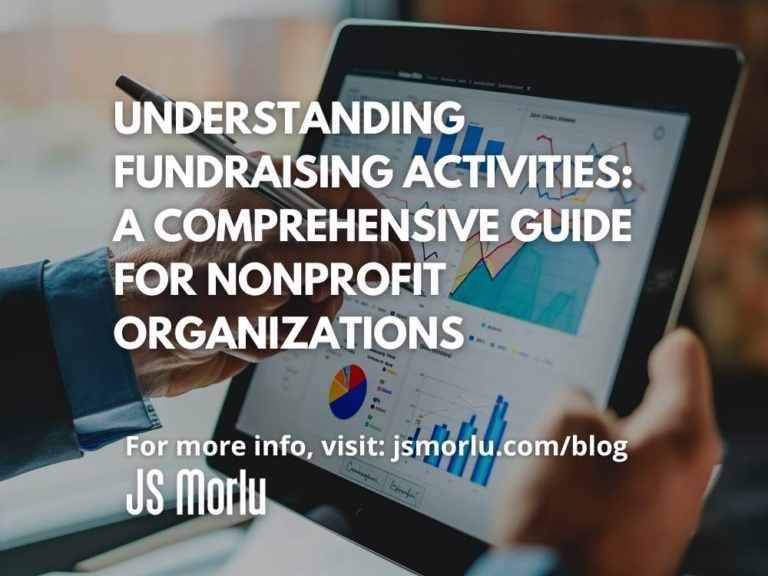In the intricate ecosystem of nonprofit organizations, fundraising emerges as the lifeblood that sustains their noble missions and facilitates community service. This comprehensive guide aims to navigate the multifaceted landscape of fundraising activities while emphasizing the pivotal role of transparency in ensuring the integrity and trustworthiness of these endeavors.
The Role of IRS Requirements:
The Internal Revenue Service (IRS) imposes stringent requirements on nonprofits to disclose specific fundraising activities and agreements. Such regulations are meticulously crafted to uphold transparency, accountability, and ethical conduct within the nonprofit sector. By mandating these disclosures, the IRS aims to thwart fraudulent practices, including the misappropriation of fundraising expenses or the provision of excessive compensation to fundraisers. Through these measures, the interests of donors are safeguarded, and public trust in charitable organizations is fortified.
IRS Requirements for Nonprofits:
Schedule G Disclosures:
Nonprofits are obligated to furnish comprehensive details regarding fundraisers, including their identities, contact information, activities undertaken, and whether they had custody or control of contributions.
Additionally, organizations must meticulously document gross receipts generated from fundraising activities, as well as the precise amounts disbursed to or retained by fundraisers and the organization itself.
State Registrations:
In addition to IRS mandates, nonprofits are required to provide an exhaustive list of all states in which they are registered or licensed to solicit contributions. Alternatively, they must indicate if they have been granted exemption from registration or licensing requirements.
Types of Fundraising Activities:
- Mail Solicitations: Direct mail campaigns remain a staple in nonprofit fundraising efforts, encompassing personalized letters, informative brochures, and streamlined donation forms dispatched via postal mail.
- Internet and Email Solicitations: With the pervasive influence of digital technology, nonprofits leverage websites, social media platforms, and targeted email newsletters to broaden their outreach and solicit online donations effectively.
- Phone Solicitations: Direct engagement via telephone enables nonprofits to forge meaningful connections with potential donors, presenting personalized appeals and fostering a sense of community involvement.
- In-Person Solicitations: Face-to-face interactions offer nonprofits an invaluable opportunity to establish rapport with donors, whether through intimate gatherings, community events, or door-to-door campaigns.
- Solicitation of Non-Government Grants: Nonprofits actively pursue grants from private foundations, corporations, and philanthropic entities to fund their diverse array of programs and initiatives.
- Solicitation of Government Grants: Government grants constitute a substantial funding source for nonprofits, supporting initiatives spanning education, healthcare, environmental conservation, and beyond.
- Special Fundraising Events: Gala dinners, charity auctions, marathons, and cultural performances serve as vibrant platforms for nonprofits to engage donors, celebrate philanthropy, and raise funds in an immersive and festive setting.
Professional Fundraising Services:
Nonprofits may engage in formal agreements, whether written or oral, with individuals or entities specializing in professional fundraising services. These agreements delineate the terms of compensation, the scope of services to be rendered, and any associated obligations or limitations.
Notably, nonprofits are mandated to disclose information pertaining to their highest-paid fundraisers, remunerated at a minimum threshold of $5,000 under such agreements, thereby fostering transparency and informed decision-making by donors.
Importance of Transparency:
Transparency constitutes the cornerstone of effective fundraising practices, underpinning trust, credibility, and donor confidence. Nonprofits are duty-bound to furnish stakeholders with lucid and accurate insights into their fundraising initiatives, elucidating how funds are allocated, the tangible impact of contributions, and the overarching mission they seek to advance.
Conclusion:
In the dynamic realm of nonprofit endeavors, fundraising emerges as an indispensable mechanism for effecting positive change and catalyzing societal progress. By embracing a diverse array of fundraising modalities and steadfastly upholding principles of transparency, nonprofits can harness financial resources with efficacy and precision, thereby amplifying their impact and advancing their overarching mission. Compliance with IRS requirements not only signifies legal adherence but also serves as a testament to the integrity, accountability, and unwavering commitment of nonprofits to their donors, stakeholders, and the communities they serve.
JS Morlu LLC is a top-tier accounting firm based in Woodbridge, Virginia, with a team of highly experienced and qualified CPAs and business advisors. We are dedicated to providing comprehensive accounting, tax, and business advisory services to clients throughout the Washington, D.C. Metro Area and the surrounding regions. With over a decade of experience, we have cultivated a deep understanding of our clients’ needs and aspirations. We recognize that our clients seek more than just value-added accounting services; they seek a trusted partner who can guide them towards achieving their business goals and personal financial well-being.
Talk to us || What our clients says about us


